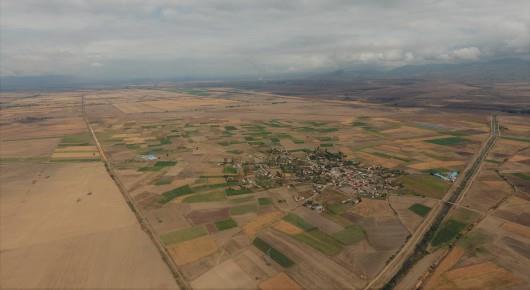FAO, EU see prospects for a strong digital agriculture

The digital revolution, with its avalanche of information and communication technology tools, is penetrating all spheres of life, and agriculture is no exception. Experts of e-agriculture, as it is called, are discussing the topic at an international event this week in Sofia, Bulgaria, together with representatives of governments, civil society and industry.
The forum is unique in the sense that the voice of farmers will be articulated by 130 farmers from the Western Balkans, Turkey, and Bulgaria who are present at the event.
The high-level forum “2gether 4 Strong Digital Agriculture” is a joint conference of the Food and Agriculture Organization of the United Nations (FAO); the Bulgarian Ministry of Agriculture, Food and Forestry; and the Institute for Agrostrategies and Innovations, under the Bulgarian Presidency of the Council of the European Union.
A study tour on Tuesday took participants to visit two farms close to Sofia. Thematic and interactive sessions, project presentations and panel discussions will follow as the event continues.
“FAO considers e-agriculture a key enabler of agricultural and rural development, triggering change through improved information and communication processes,” said Nevena Alexandrova-Stefanova, FAO agricultural innovation systems and knowledge sharing officer, in her introductory presentation today.
To back this, the event aims not only to raise awareness of the potential policy options of digital technologies in agriculture and to promote existing initiatives, but also to connect all actors involved and create an environment for knowledge sharing and dialogue.
Alexandrova-Stefanova pointed at the heterogeneity of the Europe and Central Asia region, where Internet penetration ranges from 28 percent in Central Asia to 98 percent in some European Union member states.
With the growing complexity of farming technologies and processes, farmers' challenges multiply. However, precise and smart farming systems, together with other modern technologies, data analysis, digital innovations and the “Internet of things,” have great potential to help farmers produce food in a more sustainable and environment-sparing way.
“With the adoption of the Sustainable Development Goals, the global community pledged to leave no one behind. We need actions at the system level to overcome challenges and make this happen,” she urged.
This is especially true in the Western Balkans, where agriculture is still an important economic sector, dominated by small and even smaller farms with unequal access to resources. To avoid widening the digital divide and instead foster economic green growth and social inclusion, governments should take steps, Alexandrova-Stefanova said. These should include committing themselves to upscaling new solutions, supporting systems and capacity development, and creating an enabling environment for innovation, she said.
In 2016, to assist countries in developing their national e-agriculture strategies and roadmaps, FAO and the International Telecommunication Union jointly published a national e-agriculture strategy guide and toolkit.
“At FAO we believe that no technology alone can resolve the problems in agriculture,” Alexandrova-Stefanova concluded, “but the right combination of channels, processes, and tools can make a development change where it is most needed.”
19 April 2018, Sofia, Bulgaria
